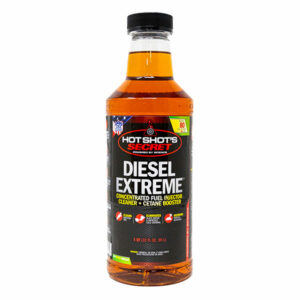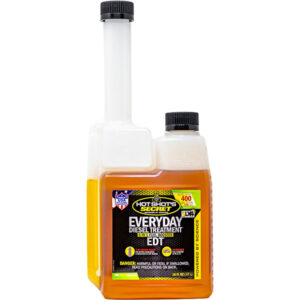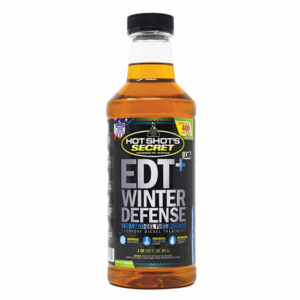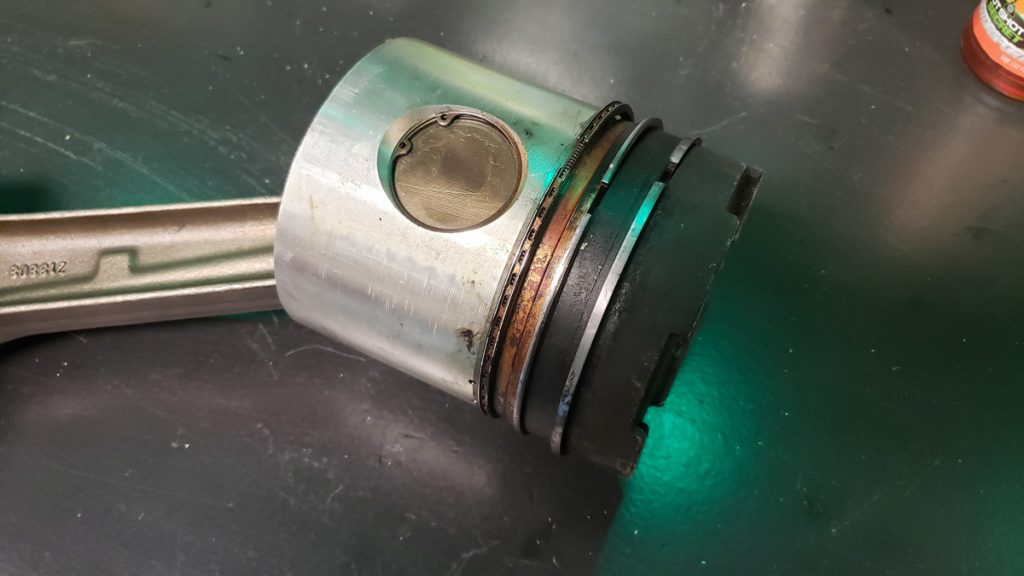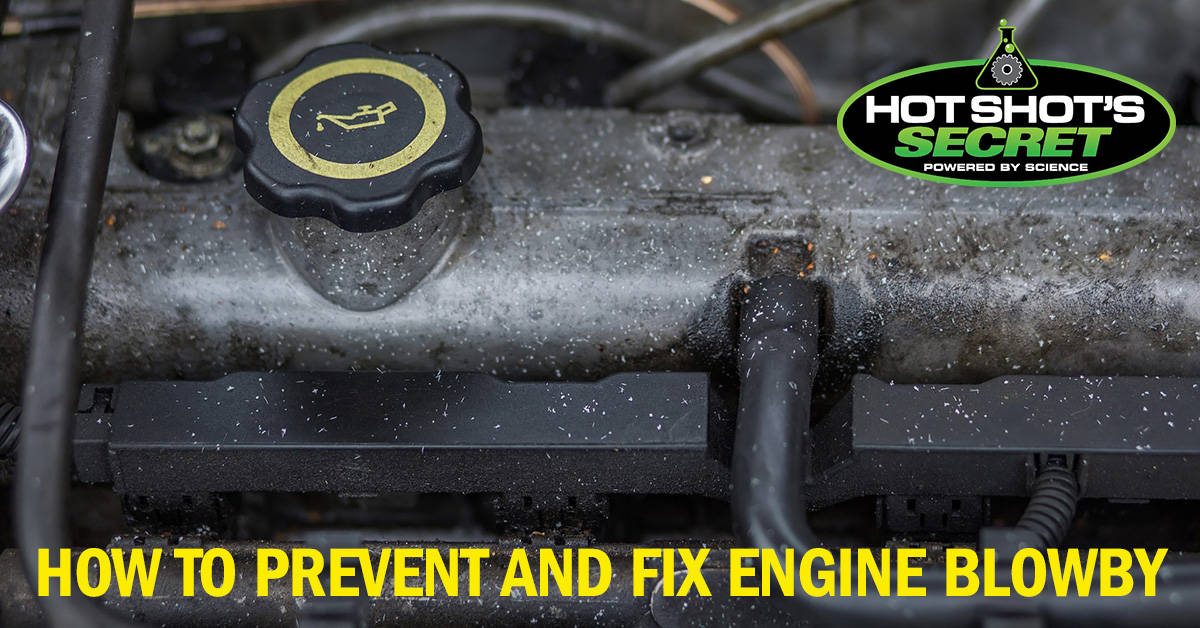
Diesel engines contain different internal metals that expand and contract at varying rates. While these metals are necessary for operation, gaps between various parts can lead to poor sealing and another common challenge — excessive blowby.
Read our guide or view our products to find solutions for your problems.
What Is Blowby in a Diesel Engine, and What Causes It?
Blowby describes when the combustion chamber’s pressure forces pollutants into the crankcase, bypassing the loose piston rings that fail to contain the pressurized pollutants. These pollutants include air, fuel, carbon dioxide and vapor. During extensive operation, the pistons start wearing and can no longer maintain a strong seal, increasing blowby.
Blowby surpassing the piston rings introduces combustion gases and increased pressure into the oil pan. These gases may contain fuel that hasn’t burned properly or particulates, resulting in condensation due to temperature differences between the crankcase and the combustion gas. When engine oil combines with blowby, it creates acids and sludge that can harm other engine parts. Unspent fuel also dilutes oil’s viscosity and lubricity, adversely impacting your valve train, cylinder walls and engine bearings.
What Causes Blowby in a Diesel Engine?
Blowby has several causes, including:
- Damaged, misplaced, or worn-out piston rings: Some rings break down, become loose through engine vibration, wear due to constant cylinder wall friction, or no longer have a good seal, allowing gaps or air spaces for engine contaminants to come into contact with the crankcase. Also, piston rings that don’t seat properly against the cylinder walls can cause excess blowby.
- Eroding cylinders or pistons: High mileage, constant wear and a lack of routine upkeep can cause misalignments and create gaps for engine blowby.
- Carbon buildup: When using low-quality fuel, the engine may experience incomplete combustion, causing carbon buildup that prevents the piston rings from sealing.
- Contaminants causing combustion inefficiencies: Fuel is susceptible to contaminants that may promote inefficient or incomplete combustion, whereby they enter the crankcase and cause blowby.
- Core engine damage: The cylinder, oil and fuel injectors attract dirt and dust, damaging core engine elements and increasing the risk of gas leaks during combustion, which can subsequently cause blowby.
- Engine or piston manufacturing defects: Although rare, poorly manufactured engine components and pistons can cause blowby.
- Cylinder wall degradation: Constant friction and exposure to heat and contaminants may wear the cylinder walls and prevent the piston rings from sealing properly. Poorly lubricated cylinder walls experience scoring, accelerating wear and leading to blowby.
- Thermal expansion: Consistently high temperatures cause some engine parts to expand, such as the cylinder walls, piston rings and related parts. Changing how the components fit creates gaps that lead to blowby.
- Poor maintenance: Regular oil changes and piston checks prevent oil contamination and promote engine lubrication. Neglecting these tasks may contribute to blowby.
- Oil quality: Oil becomes thick and old over time, impacting lubrication and increasing contaminant exposure. Poor lubrication causes friction that can damage the pistons and cylinder walls, while the resulting blowby introduces contaminants into the oil.
- Wear and tear due to high mileage: The higher the mileage, the more wear and tear engine parts endure. Check your engine regularly, especially if you notice any of the above issues.
Issues Blowby Can Cause
Engine blowby can cause a plethora of problems. One of the most common is cracking piston rings and ruining HEUI fuel injectors in early Powerstroke engines. Ignoring this problem could not only cost your fuel injectors, but also it more than likely will foul your turbo, EGR Valves, and DPF. These are not cheap fixes either — you’re looking at being out thousands of dollars and potentially dealing with the same problems in a few years.
Overall you will notice a loss in engine performance and fuel economy. Air, fuel, and other contaminants will slip into the crankcase and cause all types of problems. This is because engine blowby causes gaps and cracks in the piston rings, and by that time it’s often too late, you’ll be forced to replace piston rings, an expensive repair!
Some additional issues you might experience include:
- Increased fuel and oil consumption: Blowby causes combustion gases, soot and carbon particles to contaminate the oil, losing effectiveness. Poor lubrication wears other engine parts and increases oil consumption as the engine struggles to maintain optimal performance.
- Crankcase pressure buildup: Combustion gases from blowby seep into the crankcase, increasing internal pressure. Oil may leak if the crankcase seals and gaskets cannot handle the pressure.
- Higher emissions and increased exhaust smoke: Excessive blowby promotes higher carbon dioxide and hydrocarbon emissions, adversely impacting the environment. You’ll also notice increased exhaust smoke while driving, especially when accelerating.
- Accelerated engine part wear and tear: Crankcase pressure buildup and contaminated oil from blowby accelerate wear on internal engine parts, especially the piston rings and cylinder walls. If the issue persists, the engine may eventually seize.
- Overheating: Blowby can cause your engine to overheat when the crankcase experiences excessive heat and the cooling system struggles to keep it cool.
These are only some potential issues you may experience with diesel engine blowby. If you experience excessive blowby and have tried to resolve it, consult a professional for further advice.
How to Identify and Test for Blowby in Your Diesel Engine
How do you know if you have excessive blowby? You may experience several issues that will help you identify and test for blowby, ensuring you take corrective measures:
- White smoke: A telltale sign of excessive blowby is white smoke billowing from the block oil fill or opening on a valve cover. To check this, place the oil-filler cap upside down on the tube or opening. If it blows off, there is too much crankcase pressure.
- Loud noises and exhaust smoke: Blowby is often signaled by loud engine sounds and blue or gray exhaust fumes.
- Increased fuel consumption: Increased oil and fuel consumption are common signs of oil and fuel leaking into the crankcase.
- Misfiring or hard idling: Blowby can cause your diesel engine to misfire or idle hard.
Consider the following tests to determine how much blowby you’re experiencing.
- Leak-down test: Checking the engine’s compression by performing a leak-down test is a more detailed method of diagnosing the condition and determining the blowby amount (percentage). The test is completed using a compressor and the specialized dual-gauge testing tool.
- Crank compression test: While the leak-down test tells you how much pressure your engine holds, the crank compression test sees how much force it can generate. Cranking compression builds up in the cylinders when the piston moves up to compress and the valves are closed. Measure this in pounds-per-square-inch (PSI) with a compression testing gauge and monitor inconsistent results across the cylinders.
- Blowby flow meter: You can also measure the output from your crankcase with a blowby flow meter. Attach the tool to your crankcase vent and run your engine to force air through the meter. Compare this airflow measurement to what’s considered normal blowby for your engine — divide your engine’s maximum horsepower by 50 to get an approximate number.
- Unusual engine sounds: A simple test is running the engine and listening for strange knocking or rattling sounds. It could signal internal damage that leads to blowby.
- Oil monitoring: Check your oil for contamination, as it can cause blowby, particularly when combustion particles are present.
- Oil aeration: Foam on the oil dipstick comes from combustion gases leaking into the oil due to blowby.
While these tests may help determine whether your engine has significant blowby, there could be underlying issues they can’t detect. A professional inspection will rule out any problems once you’ve done the necessary tests.
How Do You Fix Blowby?
For the right fix, you need to know the cause. Some steps to take include:
- Check your positive crankcase ventilation (PCV) valve. These valves can stick in the open position, permitting the oil to sneak past the gaskets and dirt to build up. Signs that your PCV valve may be the cause include surging, black smoke and engine sludge.
- Conduct regular maintenance: Maintain your pistons by frequently changing the oil, inspecting the cylinders and replacing the injectors where necessary. Maintenance may not fix the problem from the start but may help monitor for carbon buildup and other issues in the long term.
- Consider an additive. Blowby can sometimes result from inadequate lubrication. You can improve performance and prevent rings from sticking with Hot Shot Secret’s Diesel Extreme fuel additive and the FR3 oil friction reducer.
How Do You Prevent Blowby?
So is there anything you can do to prevent this from happening to your beloved truck? Actually yes, there is.
It starts with using high-quality oil, like Hot Shot’s Secret Blue Diamond Engine Oil. By using high-quality oil, you ensure your engine is running smoothly and reduce the friction that can cause engine blowby (caused by stiction). So, using high-quality oil is step 1— step 2, which is cleaning out what causes engine blowby and stiction.
We recommend adding Hot Shot’s Secret Stiction Eliminator every 3rd oil change to ensure your engine is stiction-free. Hot Shot’s Stiction Eliminator was specifically designed to safely clean your engine of stiction. By cleaning the stiction, the rings will move more freely, allowing for a tighter seal between the cylinder walls and the piston. That way you can avoid devastating engine blowby and the expensive manual cleaning of your pistons or even piston replacements.
No one wants to experience engine blowby and not one soul wants to have to pay for the damages engine blowby brings with it. The old saying “you get out what you put in” holds true for your diesel engine. It always pays off in the end to take care of your engine upfront by using quality fluids and adding a little bit here and there to keep things clean and running smoothly.
Use Hot Shot’s Secret to Prevent Blowby on Your Diesel Engine
Keep your diesel engine in its best running condition with our complete line of engine fluids. At Hot Shot’s Secret, we use experience and science to bring you the best products to improve your vehicle’s performance. In addition to our Blue Diamond Engine Oil and Stiction Eliminator oil additive, you’ll find a complete line of other diesel fuel additives and specially formulated transmission fluids, all backed by our 100% satisfaction guarantee.
Shop our products online or contact a representative for expert assistance.


